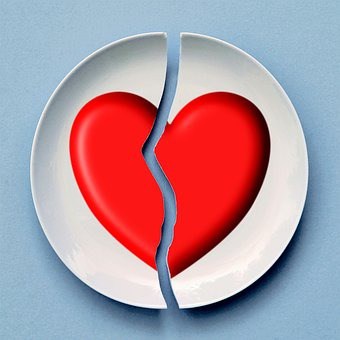Suicide is one of the top 10 leading causes of death in the U.S., according to the
Centers for Disease Control and Prevention. It is estimated that there is one suicide death every 12 minutes in this country. The CDC states that there has been roughly a 25% increase in suicide over the last few decades and that the numbers continue to grow. It will take comprehensive public health efforts to get a handle on this escalation, but better education and suicide awareness are not enough.
Despite the rising statistics in the U.S., there have been few advances in the treatment of suicide ideations (the feeling of wanting to die). Ketamine is not a miracle drug, but it does offer some exciting possibilities for treating
depression and reducing the risk of suicide.
What Drives the Increase in Suicides?
There is no one exact cause for the rise in suicides. The trend is not specific to one gender or race, either, and it affects people in all age groups. Research shows, however, that part of the problem may be an increase in isolation, thanks to things like the Internet and social media.
The rise might also correspond to the growing rate of mental illness in this country, especially among teens. From 2005 to 2014, there was an increase of around
11.3% in depression diagnoses in this age group. Socioeconomic factors certainly play a role in suicide attempts, too, such as:
- Knowledge of treatment options
- Access to healthcare
- Financial stress and poverty
- Rises in opioid abuse
Current Medical Therapies for Major Depressive Disorder
Today, the current gold standard treatment for depression is antidepressants. It is a drug therapy that does help up to 70 percent of people with depression. Even so, 30% still fall through the cracks.
Antidepressants act on the neurotransmitters in the brain that control mood and can come with side effects that lead to patient noncompliance.
Even for those who see good results with antidepressant treatment, it takes time. Most antidepressant drugs take 4-8 weeks to offer any benefit. That’s a long time to live with thoughts of hopelessness.
Enter ketamine therapy. Ketamine works by blocking glutamate at the NMDA receptor. Excess glutamate can lead to mood swings and symptoms of depression. Unlike antidepressants, ketamine works directly on the connections that help regulate mood.
Today, ketamine is administered to thousands of patients with promising results.
The History of Ketamine and Depression
It was researchers at Yale University who first made the connection between
ketamine and depression back in the early 1990s. They discovered that patients who suffered frequent depressive episodes felt better after a low-dose
ketamine infusion.
In the 2000s, scientists took a closer look at using ketamine for patients with depression, and they confirmed Yale’s findings. Their studies show that ketamine infusions provided faster response rates, too.

In 2002, anesthesiologists at Hakodate Watanabe Hospital in Amori, Japan, noticed that in surgeries in which they used ketamine as the anesthetic, patients had less post-surgical pain and fewer feelings of depression. They also determined that relief was much faster with ketamine treatments.
And in 2006, a study conducted by Graeme Correll and Graham Futter showed that patients with a long history of depression felt better after a low-dose intravenous infusion of ketamine.
Ketamine as a Suicide Prevention Medication
It’s been a longstanding problem in emergency rooms – how can we protect patients with suicidal thoughts? Antidepressants take too long to work (weeks in most cases), and they can trigger negative thoughts and suicidal tendencies.
Cognitive therapies are useful, but they take time to work, too. For physicians in emergency rooms, that leaves either hospitalizing or discharging patients, despite the potential risk of suicide.
Ketamine has proven to be the fastest-acting depression treatment option, giving patients relief, typically within four hours or less. Having alleviated suicidal thoughts so quickly, ketamine then allows talk therapy and other
medications to work their magic.
The Research on Ketamine for Suicidal Ideation
A very well-done study was published that examined the effects of ketamine in 2022. This study was a randomized controlled trial in France that took about 7 years from study start to publication. In it, the researchers administered two ketamine infusions to individuals suffering from acute suicidal ideation. They found that after only two infusions, 63% of participants entered into remission from suicidal ideation in only 3 days.
Looking to the Future
More and more evidence shows that low-dose infusions of ketamine can reduce thoughts of suicide and provide depression relief in just a few hours. Physicians are seeing some patients even feel a decrease in depression and suicide risk within just 15 minutes.
As suicide rates continue to rise, medical science must strive to find preventive medications. Ketamine is increasingly proving to be the future of suicide prevention medicine. The benefits that ketamine provides for depression and suicidal thoughts have triggered more discussions on ways to block glutamine, stimulating research that has been ineffective for decades.
Ketamine has many uses in medicine for pain relief and as an anesthetic, but as a method of treatment for depression, it can do what other drug treatments have failed to do: help reduce suicidal ideations. As a drug for suicide prevention, ketamine offers hope to people with treatment-resistant depression, bipolar disorder, addiction,
PTSD, and more.
 In 2002, anesthesiologists at Hakodate Watanabe Hospital in Amori, Japan, noticed that in surgeries in which they used ketamine as the anesthetic, patients had less post-surgical pain and fewer feelings of depression. They also determined that relief was much faster with ketamine treatments.
And in 2006, a study conducted by Graeme Correll and Graham Futter showed that patients with a long history of depression felt better after a low-dose intravenous infusion of ketamine.
In 2002, anesthesiologists at Hakodate Watanabe Hospital in Amori, Japan, noticed that in surgeries in which they used ketamine as the anesthetic, patients had less post-surgical pain and fewer feelings of depression. They also determined that relief was much faster with ketamine treatments.
And in 2006, a study conducted by Graeme Correll and Graham Futter showed that patients with a long history of depression felt better after a low-dose intravenous infusion of ketamine.















